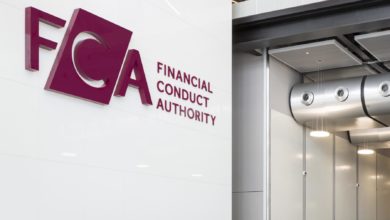ACCA report warns of challenges for internal control within organisations
Respondents were asked the purpose of internal control in an entity, with 88% saying it minimises risk, 84% cited prevention of fraud, and 77% the protection of assets

A new report from the Association of Chartered Certified Accountants (ACCA) has revealed the purpose and effectiveness of internal control are being tested “like never before” by myriad external pressures. The Internal Audit Foundation and the Institute of Management Accountants (IMA) are said to have contributed to the report.
It is reported that the three professional bodies joined forces to poll some 2,000 of their global members to “better understand what lies ahead for internal control”, which is said to be a core part of business operational management.
The findings show that the continued effects of the pandemic, the turbulent economic climate, regulation, as well as data and technology are all presenting organisations with unique challenges for their internal control activities.
The results highlighted a lack of appropriately skilled staff by 50% of respondents as a challenge, and 41% said technological advances are compromising existing internal controls, while nearly a third (32%) said a lack of executive emphasis on internal controls was also impacting the management of internal control.
Respondents were also asked the purpose of internal control in an entity, with 88% saying it minimises risk, 84% cited prevention of fraud, and 77% the protection of assets.
The poll also shows that most respondents (80%) say they agree or strongly agree that they need to apply their internal control framework to non-financial and ESG reporting.
Helen Brand, chief executive of ACCA, said: “Internal control forms a core part of the activities of accountancy, finance and internal audit professionals, assisting them to ensure that entities operate effectively and efficiently. Yet the business model is changing for many because of various and interconnected external pressures.
“Given this ongoing turbulence, it’s therefore essential that organisations recruit and retain the skilled people who can ensure that internal controls are agile and future-ready to support business transformation and growth.”
Jeff Thomson, president and CEO of IMA, said: “As we say in the foreword to our report, internal control goes beyond statutory compliance requirements. It helps entities build trust, confidence, and a positive reputation in achieving strategic business outcomes. All this is increasingly vital now and in the future as we do not see turbulence or volatility decreasing.”
Anthony J. Pugliese, president and chief executive officer of IAF board of trustees, said: “Internal control demands appropriate prioritisation by management and a combination of people, processes, technology, and data – all underpinned by an unwavering commitment to trust and ethics. The route to this is through professional qualifications and continuing professional development, which our three organisations commit to delivering now and in the future.
“The report also makes numerous recommendations and actions to improve internal control listed under headlines about the main drivers of change such as strategic, transformation, people, processes, technology, and data.”
Clive Webb, a co-author of the report and head of business insights at ACCA, added: “Our recommendations will help accountants, finance professionals, and internal auditors navigate the way ahead as entities continuously evolve and transform.
“Our collective professions’ role in this change is essential, and we have every faith that their skills, knowledge, and dedication will ensure the future strength and integrity of internal control processes in an increasingly challenging world.”









